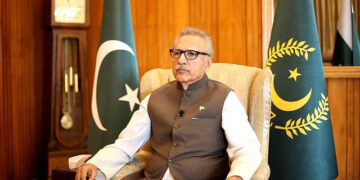 Annoyed by lack of progress on projects under the Public Sector Development Programme (PSDP) for the current fiscal year, Prime Minister Nawaz Sharif asked Minister for Planning and Development Ahsan Iqbal on Monday to conduct a comprehensive review of the programme. The directive was issued in the light of a report by a six-member committee formed by the prime minister. The committee, headed by the planning minister, is reported to have submitted to the prime minister an action plan for diversion of funds from slow-paced and unproductive projects to some major projects which could have better impact on the economy. Only 27 per cent of the allocated funds have so far been released to federal ministries against the scheduled disbursement of 55pc, according to the under-resourced Planning Commission.
Annoyed by lack of progress on projects under the Public Sector Development Programme (PSDP) for the current fiscal year, Prime Minister Nawaz Sharif asked Minister for Planning and Development Ahsan Iqbal on Monday to conduct a comprehensive review of the programme. The directive was issued in the light of a report by a six-member committee formed by the prime minister. The committee, headed by the planning minister, is reported to have submitted to the prime minister an action plan for diversion of funds from slow-paced and unproductive projects to some major projects which could have better impact on the economy. Only 27 per cent of the allocated funds have so far been released to federal ministries against the scheduled disbursement of 55pc, according to the under-resourced Planning Commission.
The 11-member commission is being run by the deputy chairman, planning secretary and a member. The prime minister is chairman of the commission. The big projects which will now get funds on a priority basis include Diamer-Bhasha dam, Pakistan-China economic corridor, rehabilitation of railways and some infrastructure schemes like Lahore-Karachi motorways and Balochistan. According to an official press release, the prime minister expressed dissatisfaction over poor pace of work on some development projects and said such delays adversely affected the development of his government’s agenda.
He directed that work on projects which had high public utility should be completed within the stipulated time frame. “Best human resources should be placed in key ministries and on key projects for ensuring efficient and timely completion of the projects,” he said, adding that placements should be made purely on merit, without any favouritism. The prime minister Nawaz Sharif directed the Planning Commission to formulate an appropriate mechanism for rewarding the employees who were delivering results and working efficiently. He also said that there should be a framework to monitor procurements for projects by independent auditors to ensure transparency.
Dwan
Annoyed by lack of progress on projects under the Public Sector Development Programme (PSDP) for the current fiscal year, Prime Minister Nawaz Sharif asked Minister for Planning and Development Ahsan Iqbal on Monday to conduct a comprehensive review of the programme. The directive was issued in the light of a report by a six-member committee formed by the prime minister. The committee, headed by the planning minister, is reported to have submitted to the prime minister an action plan for diversion of funds from slow-paced and unproductive projects to some major projects which could have better impact on the economy. Only 27 per cent of the allocated funds have so far been released to federal ministries against the scheduled disbursement of 55pc, according to the under-resourced Planning Commission. The 11-member commission is being run by the deputy chairman, planning secretary and a member. The prime minister is chairman of the commission. The big projects which will now get funds on a priority basis include Diamer-Bhasha dam, Pakistan-China economic corridor, rehabilitation of railways and some infrastructure schemes like Lahore-Karachi motorways and Balochistan. According to an official press release, the prime minister expressed dissatisfaction over poor pace of work on some development projects and said such delays adversely affected the development of his government’s agenda. He directed that work on projects which had high public utility should be completed within the stipulated time frame. “Best human resources should be placed in key ministries and on key projects for ensuring efficient and timely completion of the projects,” he said, adding that placements should be made purely on merit, without any favouritism. The prime minister directed the Planning Commission to formulate an appropriate mechanism for rewarding the employees who were delivering results and working efficiently. He also said that there should be a framework to monitor procurements for projects by independent auditors to ensure transparency.












